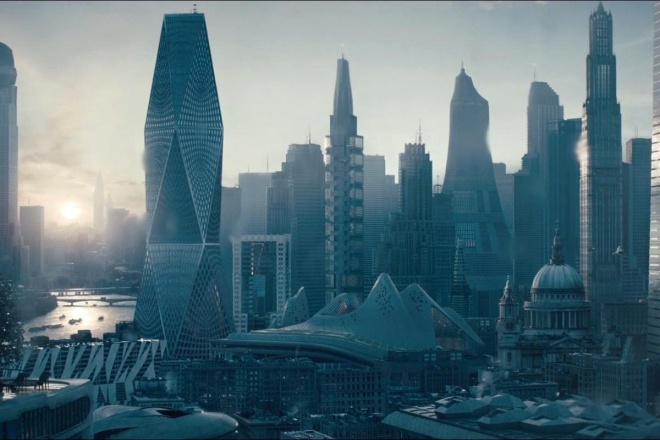Pop culture anniversaries seem to be a dime a dozen lately, but there’s not very many that can claim to still be making new fans 50 years after it’s initial creation. Star Trek has done exactly that. For the uninitiated, Star Trek was a TV Series that aired on NBC between 1966 and 1969. During that time, it aired for three seasons and 79 episodes. However, the show didn’t garner much in ratings at the time and was canceled. But, throughout the 70’s, the show became a hit in syndication, and Paramount attempted to create a second series, known as Phase II. However, after much behind-the-scenes drama (seriously, lots of drama) and the successful releases of Close Encounters of the Third Kind and Star Wars, the initial pilot was rewritten into 1979’s Star Trek: The Motion Picture.
Since then, Star Trek has cultivated 12 (with one more on the way) films, over 700 episodes of television through 5 different series, and has gone on to influence more than a few scientific inventions and discoveries. And that’s all fine and dandy if you like behind the scenes info, but what about what is truly at the center of every Star Trek adventure?

The characters and moral dilemmas take center stage in any truly great sci-fi story, and the best of what Star Trek has to offer exemplifies this. Take an episode from Star Trek: The Next Generation‘s second season, The Measure Of A Man. In it, Lt. Commander Data (played by Brent Spiner) is taken to trial and Captain Jean-Luc Picard (played by Patrick Stewart) defends him. And what is he on trial for? Whether or not Data, who is an android, is the property of the Federation or a sentient being. It calls into question what exactly makes up a true being, and when we build robots, are we not creating a race of beings? It further questions how far would you go to fulfill your own duties, even if you don’t agree with them? Such questions, plots, and strong character-driven moments are at the heart of what makes Star Trek a success.
At the end of Star Trek: The Motion Picture, the Enterprise goes to warp and viewers are presented with a single sentence: “The human adventure is just beginning.” That has been the cornerstone of each series so far. The Next Generation sees Picard and crew go on trial for the crimes of humanity against itself as Q, a god-like entity, challenges the crew of the Enterprise-D to show him that humanity has evolved beyond it’s troubled past. Deep Space Nine was a show tackling a lot of different issues, chief among them, religion and rebellion during times of war. Voyager hearkens back to The Original Series by throwing Captain Kathryn Janeway and crew to the other side of the galaxy where they meet new races and worlds on their way home. But Enterprise was the most unique show of the bunch. Enterprise chose to turn back the clock and has us see the Federation being formed when humanity first starts to truly explore the stars.

In each of these series, there is a deliberate choice to create very unique characters that tackle subjects the majority of television doesn’t dare explore. Things like the aforementioned qualifications of sentience, sexuality, and of how often what is right or wrong can fall into a gray area. But to me, Star Trek has shown me that when you have a disagreement with someone, there is always a solution that is better than the initial idea.
The Federation, more often then not, seeks to find peace in the galaxy. That desire is reflected in each captain’s actions. Even in the 2009 film, Captain Kirk asks if Nero wants assistance while his ship begins to be ripped apart by the black hole. Nero adamantly refuses by saying he would rather witness the death of his homeworld a thousand times over. Yikes. Point is, diplomacy is at the forefront of what the Federation hopes to achieve. Is it perfect? No, just look at Star Trek Insurrection. The Federation is capable of heinous acts, but for the most part Star Trek has shown me that humanity can overcome it’s greatest obstacles and push ever farther into space and other frontiers.

And that’s what I see and get out of Star Trek. It creates a future for Earth and for humans that is nothing short of wondrous. Where we as a species have shed our prejudices, and collectively strive to make humanity the best that it can be. And an ideology where peace and negotiations take precedence over waving the biggest stick. It gives me hope that the squabbling I see in our current world will eventually give way to something prosperous.

Fantastically said!
LikeLike